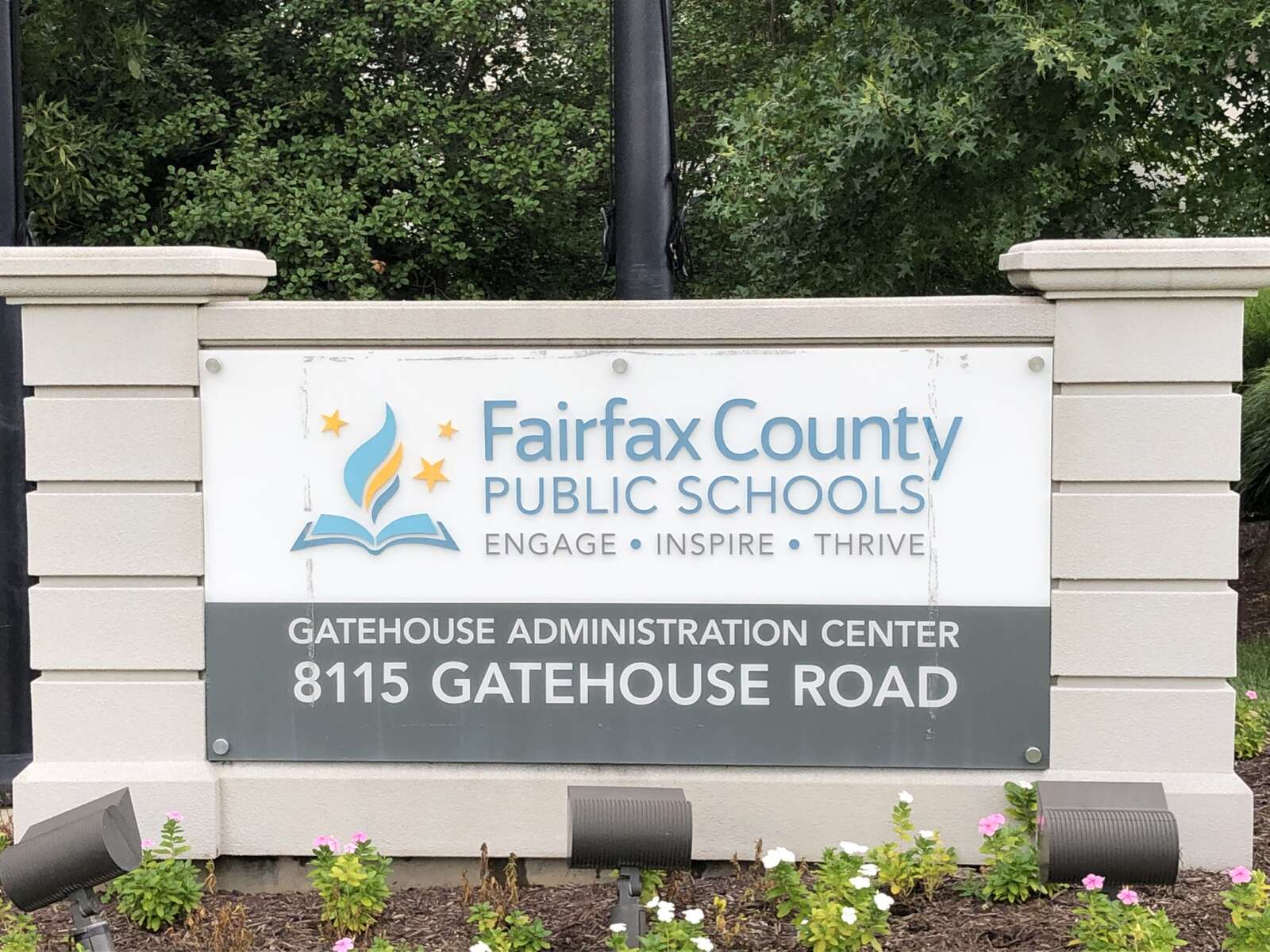
All Fairfax County Public Schools employees will get a bump in their paychecks, starting next year, after the school board unanimously approved 2% raises last week.
The additional pay was made possible by the budget that the Virginia General Assembly belatedly adopted in early September, which provided money to raise teacher salaries across the state. But school board members and FCPS workers argue that overall state funding for education falls far short of what they need.
“While the 2% raise is a start, it is clearly insufficient in ensuring our professionals are compensated at their full value, nor does it bridge the gap enough for family liaisons, drivers, [instructional assistants] and others to earn a wage that allows them to reside in Fairfax County,” Mason District Representative Ricardy Anderson, chair of the school board’s budget committee, said before the vote on Thursday (Oct. 26).
Effective Jan. 1, the 2% raise will ensure FCPS can “retain teachers at the status quo, essentially,” keeping pace with other school districts in the state, Mount Vernon District Representative Karen Corbett-Sanders said. Loudoun, Arlington, Prince William and Alexandria schools have also approved the increase, FCPS staff told the board.
State formula underestimates school staffing costs
According to the meeting agenda, FCPS is getting a $19.7 million increase in state revenue from the revised fiscal year 2024 budget. However, only $5.3 million of that was designated for the 2% raises, with the remainder intended as “reimbursement” for support staff positions, Anderson explained at the school board meeting.
With the raises costing a total of $30.5 million, FCPS is taking advantage of “flexibility allowed with” the support staff funding to allocate that $14.4 million to the compensation supplement, Anderson said. The remaining gap will be filled by $10.8 million from the school system’s staffing reserve, which is set aside in case more positions are needed than anticipated in each year’s budget.
The reserve will still have enough money for about 99 staff positions, FCPS Chief Financial Officer Leigh Burden told the board, noting that new positions aren’t often added after October “because of the potential disruption of adding teacher positions once the school year has started.”
In other words, the “burden” of funding the school system and its employees “rests largely on local funds,” Anderson said.
The standards of quality (SOQ) formula that Virginia uses to calculate the number of positions each school division needs and how much they will cost “substantially” underestimates actual school needs, according to a report released in July by the Joint Legislative Audit and Review Commission (JLARC), which evaluates programs and provides state agency oversight for the General Assembly.
The report found that Virginia provides 14% less funding per student than the national average, trailing Maryland by 18% and West Virginia by a whopping 25%.
“The points made in the study about Virginia being one of the lowest paid states for teachers in the United States is an abysmal statistic to behold,” Tamara Derenak Kaufax, who represents Franconia District on the school board, said. “…We cannot continue to be last in the nation in this, with the pay for our teachers in particular, so it is something that we will continue to fight for.” Read More
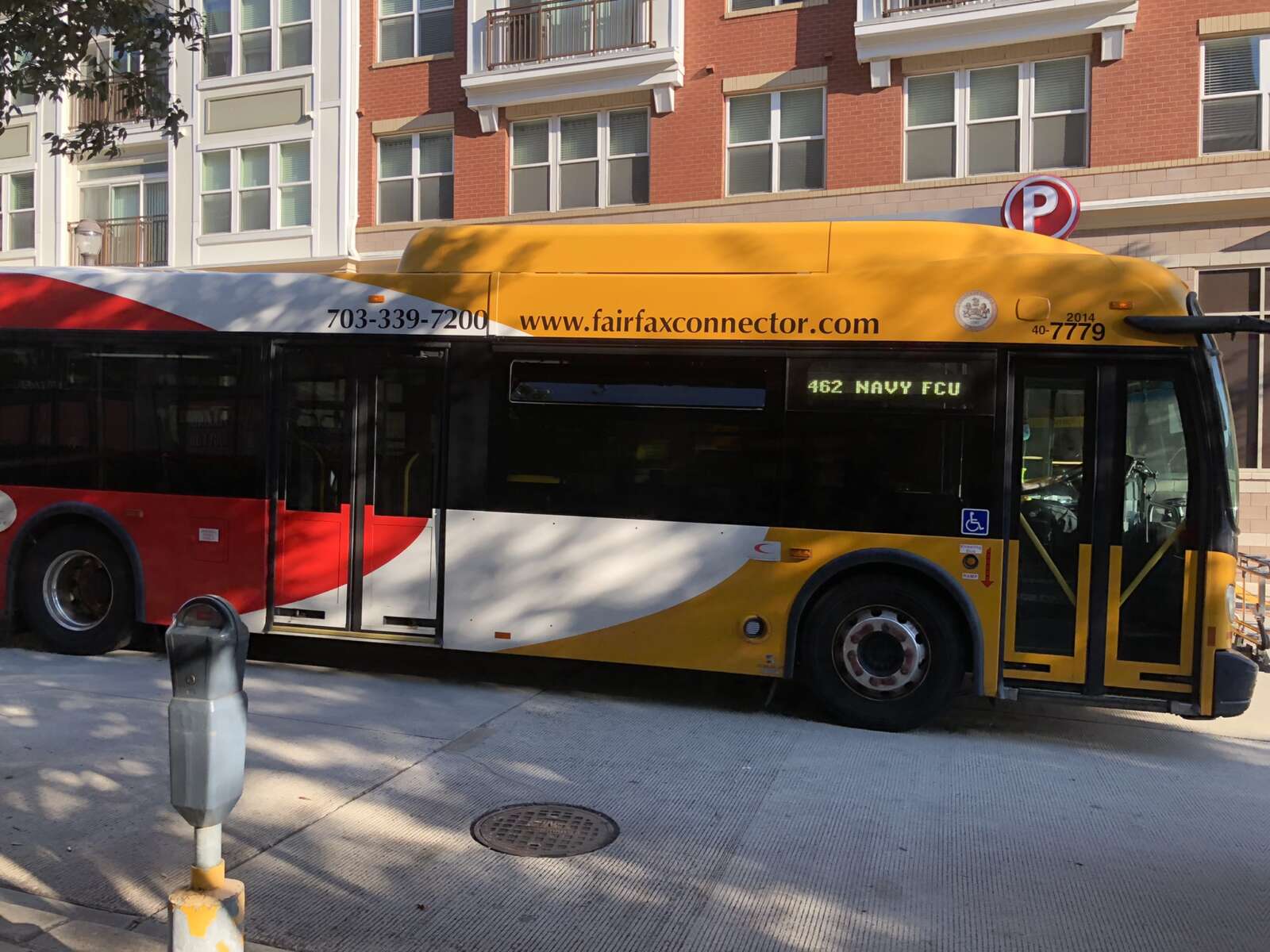
Negotiations over pay, benefits and working conditions are underway for hundreds of Fairfax Connector employees.
Amalgamated Transit Union Local 689 presented an initial proposal on Oct. 13 for a contract that would cover 546 members who work for Fairfax County’s bus system to Transdev, the company that operates the transit service, the union said in a press release yesterday (Monday).
With its current contract set to expire Nov. 30, the union says workers are seeking wage increases “to keep competitive with other transit companies,” improved sick leave, retirement security for current and future employees and standard 40-hour, 5-days-per-week schedules at all bus garages.
However, bargaining sessions scheduled for yesterday and today (Tuesday) were canceled over the weekend by Transdev, according to ATU Local 689, which said it was told the contractor “would not be ready to counter” its proposal.
“It is extremely disappointing that while Local 689 worked tirelessly to craft a new contract proposal and prepared to bargain in good faith, Transdev has apparently failed to do the same,” Local 689 President Raymond Jackson said in a statement. “Our members providing a public service in Fairfax County are dedicated professionals who deserve a fair contract. Local 689 remains committed to advocating for our members and is ready to meet with Transdev to negotiate the new contract. We hope Transdev prioritizes the contract talks and its employees, not profit.”
FFXnow reached out to a Transdev spokesperson for comment but didn’t hear back by press time.
The largest local bus system in Northern Virginia, Fairfax Connector transports about 26,000 passengers per day across 93 different routes, according to its website.
Though ridership plummeted in the first two years of the pandemic, it bounced back starting last summer, and this June, it surpassed 2019 levels with more than 774,000 riders for the month, according to data reported by the Virginia Department of Rail and Public Transportation.
When the Connector’s workers last had contract negotiations in 2019, bus drivers and mechanics — who were represented at the time by a different ATU chapter, Local 1764 — went on strike for four days before the union and Transdev signed a back-to-work agreement. Workers eventually ratified a new, four-year contract on Feb. 29, 2020, averting the possibility of a second strike.
According to a Local 689 spokesperson, Connector workers were assigned to their current chapter after Local 1764 went into receivership in 2021.
ATU Local 689, whose 15,000-plus members include employees of Metrobus and Alexandria’s DASH, welcomed former Local 1764 members on March 25, 2021, stating that “the companies kept us apart” even though members did the same work, often in the same garages.
This year’s negotiations are taking place in a different environment for organized labor, which has gained public support in the wake of the COVID-19 pandemic.
After authorizing a strike, local office cleaners won pay bumps earlier this month that their union called “historic,” and Kaiser Permanente workers secured 21% raises following a three-day strike on Oct. 4-6. The United Auto Workers expanded a strike against vehicle manufacturers in Detroit yesterday, while negotiations between Hollywood studios and the actors’ union, SAG-AFTRA, are slated to resume today — 103 days after they went on strike.
The Fairfax County Department of Transportation has a five-year, $443 million contract with Transdev, which took over the Connector’s operations and maintenance in July 2019 from the previous contractor, MV Transportation, according to previous reporting by the Washington Post.
“FCDOT Connector has no comments about this matter at this time,” FCDOT said when asked about the current talks.
Fairfax County Board of Supervisors Chairman Jeff McKay, who met with the union and Transdev to resolve the 2019 strike, says he has “not been privy” to the new contract discussions, since they’re still at a relatively early stage.
“My hope is that Transdev and the members of ATU Local 689 can come to a mutually agreeable contract that prevents a disruption of service,” McKay told FFXnow.
According to Local 689, there are three scheduled bargaining sessions remaining before the contract expires next month. The union claims that Transdev dragged its feet on providing available dates earlier this year.
“Local 689 is in the process of rescheduling the sessions with Transdev, and is more than willing to add additional sessions if needed,” the union said.
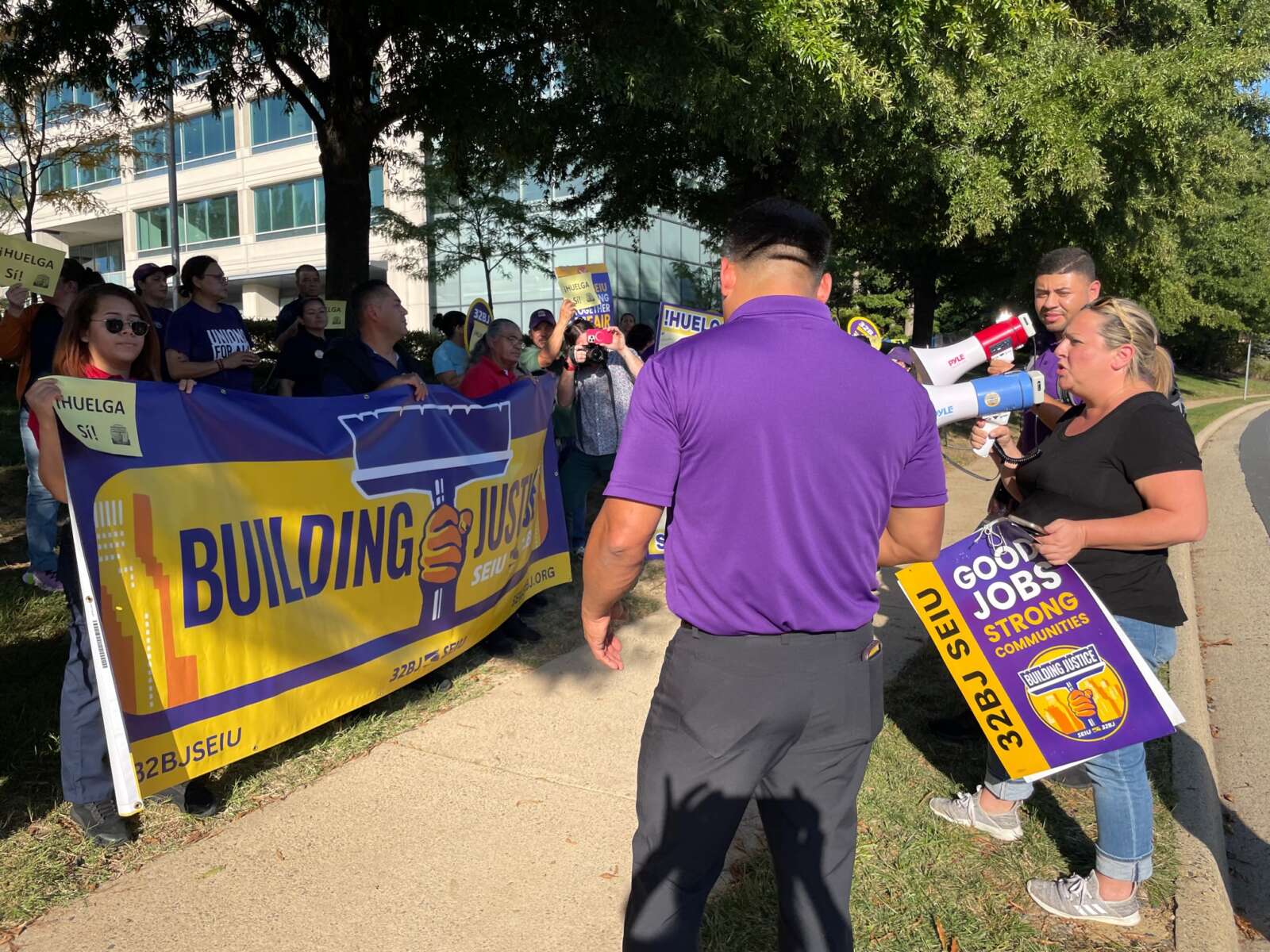
The workers who clean office buildings around Fairfax County won’t have to hit the picket lines anytime soon.
The union representing about 9,100 commercial office cleaners in the D.C. area reached a tentative agreement yesterday (Tuesday) for a new contract with property owners in the Washington Service Contractors Association (WSCA), averting a potential strike.
Expressing frustration with wages that haven’t kept up with the rising costs of food, rent and other basic needs, union members in Fairfax and Loudoun counties voted unanimously last week to authorize a strike if an agreement wasn’t reached by the time their existing contract expires on Sunday (Oct. 15).
“These men and women proved that collective action has the power to improve jobs and lives, just like other low-wage workers deserve nationwide,” said Jaime Contreras, executive vice president of 32BJ SEIU, the Service Employees International Union’s branch for the D.C. region.
Under the proposed contract, which will go to members for ratification next week, cleaners will get hourly wage increases of $3.55 to $3.75 over four years, according to the union. Pay currently ranges from $12.50 in Loudoun and Prince George’s counties — just over Virginia’s minimum wage — to $18.60.
The union’s 3,000-plus cleaners in Fairfax County, Arlington and Alexandria, who currently earn $15 an hour, will get the $3.55 raise, set to take effect in increments every July 1 through 2027, according to WSCA negotiator Peter Chatilovicz.
The larger increase of $3.75 will go to Loudoun and Prince George’s workers to keep them above the minimum wage, which will rise to $15 on Jan. 1, 2026.
The contract also preserves existing benefits for both full-time and part-time cleaners, per 32BJ SEIU:
Under the contract, janitors maintain access to free professional training and language courses as well as legal services for concerning issues such as immigration, family and matrimonial matters, and housing law among others. Full-time cleaners in all regions will maintain employer-paid health care, including prescription drugs, dental, vision and life insurance. Part-time cleaners will continue to receive life insurance and family dental benefits.
According to the union, the agreement was reached over seven bargaining sessions that started on June 22.
While pay was the primary point of contention, the union also took issue with a proposal that would’ve reduced shifts for new employees from five to four hours long. The suggestion was taken off the table last week, as local elected officials — including almost all Fairfax County supervisors — signed pledges and appeared at rallies in support of the cleaners.
A 32BJ spokesperson confirmed that the change in shifts was not part of the tentative agreement.
“I think it was a fair agreement for both sides,” Chatilovicz said. “We managed to, I think, give some very reasonable wage increases to the employees. Benefits all stayed the same without any further costs, and like I said, I think both sides were pleased to be able to reach an agreement before we had to worry about the contract expiration.”
The contract negotiations with the WSCA came amid a frenzy of labor actions across the country. While film and TV writers recently ended a nearly five-month strike, Hollywood actors and the United Auto Workers are still on the picket lines, and health care workers for Kaiser Permanente may walk off the job again in early November after a strike from Oct. 4-7 failed to produce an agreement.
Another strike may be on the horizon for the D.C. area, this time led by office cleaners who say wages have stagnated even after they were expected to keep working through the pandemic.
About 9,100 janitors, more than 3,000 of them in Northern Virginia, are voting this week on whether to go on strike if they’re unable to agree on a new contract with the Washington Service Contractors Association (WSCA) before the existing one expires on Oct. 15.
Cleaners employed in commercial buildings across Fairfax and Loudoun counties unanimously voted on Tuesday (Oct. 3) to authorize a strike, following the lead of their colleagues in D.C., who voted a day earlier, according to 32BJ SEIU, the Service Employees International Union’s branch for the D.C. region.
Coinciding with a three-day strike by Kaiser Permanente employees that’s reportedly the largest ever by U.S. health care workers, Baltimore area cleaners were set to vote yesterday (Wednesday), followed by Montgomery County workers today and Arlington County workers tomorrow.
“No one wants to strike, but we are ready to strike if employers keep pushing cuts that cleaners can’t afford,” 32BJ SEIU Executive Vice President Jaime Contreras said.
According to the union, a core sticking point in the contract negotiations, which began in June, has been a proposed reduction in shift lengths from five to four hours for about 1,100 cleaners — a third of the Northern Virginia workforce.
The change would amount to a 20% pay cut for the affected cleaners, who would have earn $100 less per week and have less time to do the same amount of work, the union says.
Peter Chatilovicz, the WSCA’s lead negotiator, told FFXnow yesterday that proposal has been taken off the table, noting that it would’ve primarily affected D.C. workers. The goal was “to provide flexibility to bring in new workers,” not cut wages for existing ones, as commercial property owners adapt to a challenging office market, he said.
The region has lost about 1,000 office janitorial jobs in recent years, according to 32BJ SEIU. A union spokesperson confirmed the shifts proposal was “verbally” withdrawn, but as of last night, nothing has been put on the record in writing.
The cleaners and WSCA last held contract negotiations four years ago, and there’s a “tentative agreement” for the next one to be the same length, extending to October 2027, Chatilovicz says. He’s “cautiously optimistic” that a deal will be reached in time, but the two groups are still split on pay.
“That’s the big issue right now is coming up with a wage compromise so that employees who are not the highest paid employees in the area or in America get a fair wage during this time, and so that we’re able to still be competitive and deal with the issues in the industry,” Chatilovicz said. “So, it’s a typical negotiation where we’re trying to exchange proposals and come up with a compromise that management can live with and the union is satisfied with.”
Under their current contract, Fairfax County cleaners earn $15 per hour, while Loudoun cleaners get $12.50 an hour. They also receive benefits like paid vacation, holidays and sick leave, health insurance if they work full-time and access to a training, education and legal services fund, per 32BJ SEIU.
While those rates exceed Virginia’s minimum wage, albeit just barely in Loudoun County, they’re not enough to match inflated prices and soaring rents, the union argues.
Alejandria Paz, a member of the union’s bargaining team who has worked as a cleaner at 1881 Campus Commons in Reston for over a decade, says she’s already struggling to keep up with the rising costs of food, rent, transportation and other necessities.
However, she also sees the prospect of reduced hours and pay as a frustrating reflection of how little attitudes toward cleaning staff have changed, despite the heightened attention to building cleanliness and ventilation brought by COVID-19. Read More
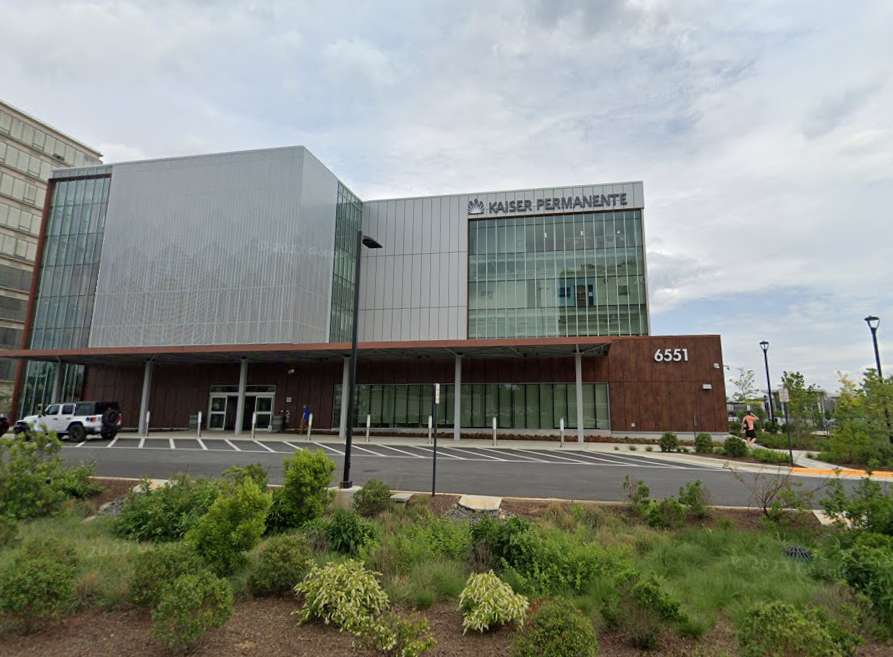
More than 75,000 workers at health care giant Kaiser Permanente are set to strike on Wednesday.
The Coalition of Kaiser Permanente Unions’ contract with the health system expired on Saturday night without reaching a new agreement with management. Union workers are bargaining for pay raises and increased protections against strain. Employees say they and patients are feeling the effects of short-staffing.
Kaiser Permanente has more than a dozen medical centers across the Washington, D.C., area with Fairfax County sites in Tysons, Reston, Fair Oaks, Burke and Springfield. The strike will take place over three days at hundreds of Kaiser Permanente facilities across Virginia, D.C, California, Colorado, Oregon and Washington, according to the unions.
“Kaiser continues to bargain in bad faith over these issues and, so far, there is no light at the end of the tunnel,” the unions said in a statement on Saturday.
Kaiser Permanente said that in Virginia and the District of Columbia, the strike covers less than 400 optometrists and pharmacists and does not include nurses or physicians. In the case of a strike, the health care provider expects facilities to remain open and operate with minimal disruption.
“We are continuing to bargain with the Coalition to reach a new agreement that protects and improves all the great advantages of working at Kaiser Permanente,” the health care provider said in a statement on Monday. “Our goal is to reach a fair and equitable agreement that strengthens our position as a best place to work and ensures that the high-quality care our members expect from us remains affordable and easy to access.”
If no contract agreement is reached by midnight, workers with union OPEIU Local 2 intend to picket Kaiser’s Springfield Medical Center at 6551 Loisdale Court tomorrow morning, DCist reported.
This article was written by FFXnow’s news partner InsideNoVa.com and republished with permission. It was lightly edited to focus on Fairfax County. Sign up for InsideNoVa.com’s free email subscription today.
Photo via Google Maps
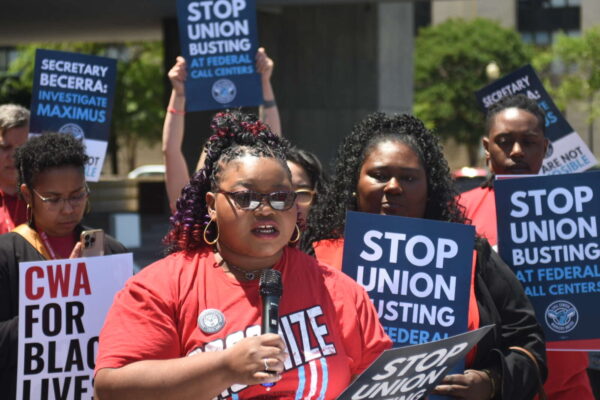
A union representing Maximus call center workers filed unfair labor practices charges against the Tysons-headquartered contractor this week.
In charges filed with the National Labor Relations Board (NLRB) on Tuesday and Wednesday (May 23 and 24), the Communications Workers of America alleges that the government services company, which operates call centers for Medicaid and Medicare, has retaliated against employees and illegally tried to discourage them from unionizing.
The CWA says it filed the complaints because Maximus is laying off more than 700 call center workers this month who handle customer service for the Centers for Medicare and Medicaid Services (CMS) and the Centers for Disease Control (CDC).
At a protest organized by Call Center Workers United, which is part of the CWA, a worker who handled calls for the CDC for three years said yesterday (Thursday) that he was laid off two days before Mother’s Day despite having a “great performance record with no discipline.”
“I believe the real reason I was laid off was in retaliation for speaking out about Maximus’ working conditions, and to scare my co-workers from supporting a union. But we have a right to speak out and tell the truth, and to organize to improve our working conditions,” Daija Arrington said at the rally in D.C. outside the Department of Health and Human Services, which operates both CMS and the CDC.
The layoffs are happening less than 2 months before Maximus usually starts its annual recruitment blitz
in July🤔🤔🤔 pic.twitter.com/ZtUCGQGQmd— Call Center Workers United (@CCWUnited) May 23, 2023
According to the charge sheet, Maximus violated federal labor laws in April and May by retaliating against employees involved in union activities by laying them off, threatening them with layoffs or worksite closures and offering severance agreements with conditions limiting their ability to talk about their experiences with the company.
The CWA also alleges that Maximus made “implied promises of benefits” to employees and forced them to attend a meeting to discourage them from unionizing.
Though the charge is tied to a call center in Hattiesburg, Mississippi, which has served as an organizing base for the union, the recent layoffs have affected employees across the company’s 10 centers, most of which are in the South, according to the CWA.
Another 143 workers at the Hattiesburg call center were reportedly laid off in January.
When contacted for comment by FFXnow, Maximus said that “the allegations were just made available to us,” but it is “confident that the company complied with all applicable labor requirements.”
“Given the lack of specific detail, including dates of alleged occurrence and names of workers, we are unable to respond directly to the allegations,” Maximus said in a statement. “We pride ourselves in complying with applicable labor laws across all our operations and will cooperate fully with any request from the National Labor Relations Board.” Read More
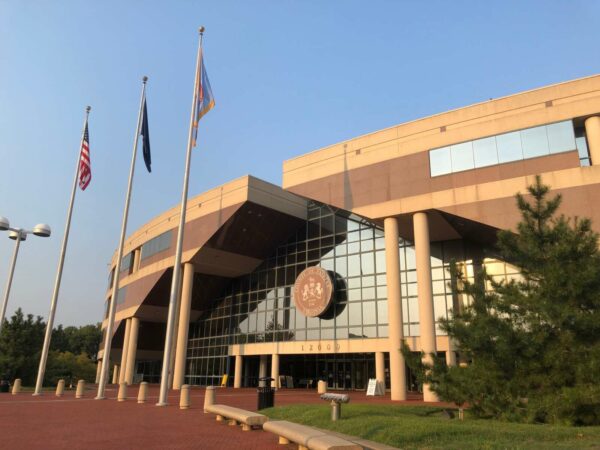
The Fairfax County Board of Supervisors isn’t holding a public hearing on its proposed salary increases until Tuesday (March 21), but some county workers have already made their opposition known.
A union representing over 2,000 county government employees criticized the proposal as a blow to workers, whose projected pay raises aren’t expected to be fully funded in the county’s next budget.
“Despite our calls for wage fairness for county employees, it appears the County has another priority — raises for politicians,” SEIU Virginia 512 Fairfax President Tammie Wondong said. “A meager 2% raise combined with the crushing weight of wage compression has left us feeling devalued. When employees have to work multiple jobs to get by or can’t afford to live in the county, it’s clear change is needed.”
With 33 years of work for the county under her belt, Wondong says the disparity between what the board is considering for itself compared to employees illustrates the need for “a union contract to achieve pay fairness.”
The Board of Supervisors approved collective bargaining in October 2021, but the Fire and Rescue Department is the only unit to officially elect a union representative so far.
Put forward by Dranesville District Supervisor John Foust on March 7, the raises would push the salaries for board members up from $95,000 to $124,000-130,000 per year and from $100,000 to $140,000-145,000 a year for the board chair.
The high end of those ranges would amount to pay bumps of nearly 37% for supervisors and 45% for the chair. Both positions last got raises in 2015.
Foust, who’s retiring at the end of December, says higher compensation will encourage candidates to run for supervisor, a position that carries full-time commitments but is treated as a part-time job in Virginia.
As I leave, I know it is critically important that we continue to attract great candidates from all backgrounds and stages of life to serve on the Board. The opportunity to serve is itself very rewarding. However, I believe it is in the best interest of the County that Supervisor compensation be set at a level that will enable anyone to serve regardless of their personal circumstances, and not just those who are wealthy or have other sources of income. I believe that increasing Supervisor pay for the first time in 8 years will advance that goal. I recognize that others have raised concerns and I look forward to the public hearing that will be held on March 21.
“I hope that through my service I have demonstrated that I care very much about the residents and employees of Fairfax County,” he said in a statement to FFXnow.
However, the challenge of affording housing, child care and other living expenses that some supervisors mentioned during their March 7 meeting also poses an obstacle to other county workers, like teachers and police, Fairfax County Federation of Teachers President David Walrod said.
About 1 in 7 Fairfax County employees can’t afford to live where they work, according to a 2021 analysis by The Commonwealth Institute for Fiscal Analysis (TCI), a Richmond-based think tank. Read More

Workers at the regional nonprofit FRESHFARM, which operates three farmers markets in Fairfax County, voted to unionize with United Food & Commercial Workers (UFCW) Local 400 earlier this week.
FRESHFARM worker Ariana MacMartin told FFXnow that the hope is a union can help workers at the farmers markets negotiate for better pay and more job security, as well as hopefully reduce turnover.
“We’ve asked for higher pay and better benefits, but we realized we couldn’t affect change without a union,” MacMartin said.
MacMartin said the specific demands are still in negotiation.
The unionization effort includes about 25 workers who staff and operate FRESHFARM’s 28 markets in the D.C. area, including sites at the Mosaic District, Reston and Oakton, according to UFCW Local 400.
Employees filed for a union election in December. Ballots were distributed on Jan. 18, and National Labor Relations Board officials counted votes on Feb. 8.
While other workers have had to fight tooth and nail for unionization, MacMartin said FRESHFARM has been an extremely agreeable partner in the process.
In a statement, FRESHFARM said:
FRESHFARM is pleased to announce that our farmers market staff have voted to unionize. The organization strives to create the best farmers markets in the region, and having a professional, well-trained workforce is front and center of these efforts. FRESHFARM management is enthusiastic about working with a collective bargaining unit committed to our mission and shared values of improving our workers’ conditions to ensure we continue to best serve our region.
MacMartin said her hope is that the negotiations and improvements can help inspire other farmers market workers.
“I want to unionize every farmers market,” MacMartin said. “My hope is our message spreads to strengthen the working class and we can have our needs met.”
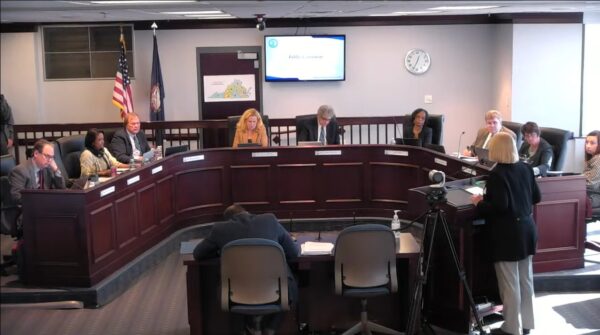
Fairfax County’s teacher unions expressed relief after new state-proposed history standards were rejected by a governor-appointed board late last week.
On Thursday evening (Nov. 17), Virginia’s Board of Education voted unanimously to again delay approving new history standards drafted by the Virginia Department of Education (VDOE).
The proposed standards had numerous admitted mistakes, errors and typos, and was radically changed from a 400-page working draft first publicly released over the summer.
The new document was also significantly shorter. A longer “framework” document which will include information on how to teach the material will be released next summer, per the Washington Post.
“We are pleased to see that the Board of Education has heard the voices of teachers, students, parents, and community activists,” Fairfax County Federation of Teachers (FCFT) President David Walrod said. “The draft of standards presented [Thursday] was hastily assembled, with multiple new versions being released in a matter of days.”
Among the most discussed changes in the draft standards were omissions of both Martin Luther King Jr. Day and Juneteenth as holidays. They also described Virginia’s indigenous peoples as America’s “first immigrants,”
The draft also eliminated racism in America as a central theme to be taught in many grades, while removing instances of teaching students about culture and government outside Europe and the U.S.
The board’s rejection came after a four-hour public hearing where a number of speakers, including Walrod, called the new standards a “whitewashing” of history.
Union President @dpwalrod tells Virginia Board of Education Members NO to the whitewashing of our social studies standards! pic.twitter.com/aemiGGVnzY
— Fairfax County Federation of Teachers (@FCFTcares) November 18, 2022
The VDOE first released this draft less than a week before the board was scheduled to vote on it, leading members to complain about the short timeframe for reviewing such large changes.
The approval had already been postponed from August after a previous draft was similarly riddled with mistakes and errors. That draft was also about 400 pages long, compared to the 57-page document this time around. Read More
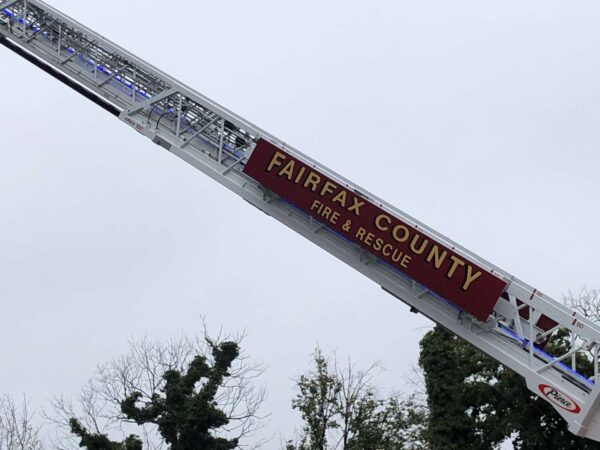
Firefighters, medics and other Fairfax County Fire and Rescue Department employees will have a union represent them in the county’s first collective bargaining negotiations for public workers in over 40 years.
Over 800 FCFRD workers participated in a 13-day election last month to determine whether to have union representation for contract talks with the county government, which will establish pay, benefits and other working conditions.
The only union in contention, the International Association of Fire Fighters (IAFF) Local 2068 won with a decisive 797 votes, or 95.2%. The only other option on the ballot was to have no representation, which received 40 votes, the union announced Friday (Nov. 18).
With 1,533 members, Local 2068 represents firefighters, fire marshals, mechanics, medics and emergency dispatchers employed by Fairfax County. 837 eligible voters — 54.6% — cast a ballot in the election from Oct. 12-31.
“This is a monumental day for the members of our department,” IAFF 2068 President Robert Young said in a news release. “But it’s also a monumental day for all Fairfax County employees, and all of the residents of our community. We’ve shown that when Fairfax County workers come together…we have the power to have a say in the decisions that impact our lives and the lives of the communities we serve.”
Last week our Election for Bargaining Representation was officially certified – Local 2068 won with over 95% of the vote (!!!)
Huge shoutout to the members of our department who voted – we look forward to negotiating/working w/ the County – Full media adv. attached#UnionStrong pic.twitter.com/MYwts1QdEd
— Fairfax Firefighters (@IAFF2068) November 20, 2022
After Virginia ended a 44-year ban on collective bargaining for public sector workers in May 2021, the Fairfax County Board of Supervisors adopted an ordinance on Oct. 19, 2021 granting employees the right to organize, elect union representatives and participate in union activities.
Under the ordinance, the county will recognize separate bargaining units for the fire department, police and other county workers. Elections haven’t been held yet for the police and general government units.
With negotiations expected to begin in early 2023, Local 2068 says one priority will be addressing the staffing shortages that have affected the fire department and other county agencies, from police to the park authority and public library system.
Local 2068 says first responders have been forced to work mandatory overtime, adding 12 to 24 hours on top of their standard 24-hour shift “sometimes with little to no notice.” The union says its members have performed over 80,000 hours of “holdovers” — equal to 3,333 24-hour days.
“Having members work such excessive mandatory overtime isn’t just bad for their health, but it’s a potential hazard for the community members we serve,” Young said. “We look forward to addressing this issue at the bargaining table.”
Collective bargaining negotiations will last up to November 2023. A resulting agreement won’t take effect until July 1, 2024, when the county’s fiscal year 2025 begins.
Some issues could be addressed earlier as part of the upcoming fiscal year 2024 budget process, which will begin in earnest when County Executive Bryan Hill presents his proposed plan on Feb. 21.
Young said Local 2068 will advocate for merit and cost of living pay increases as well as funding for automated ambulance loaders — stretchers where the legs automatically fold up as the device is rolled into a vehicle.
“We’re the only jurisdiction in the region that doesn’t have access to these tools, tools that not only help prevent members from being injured, but also help us deliver faster and safer service to the community,” Young said.

